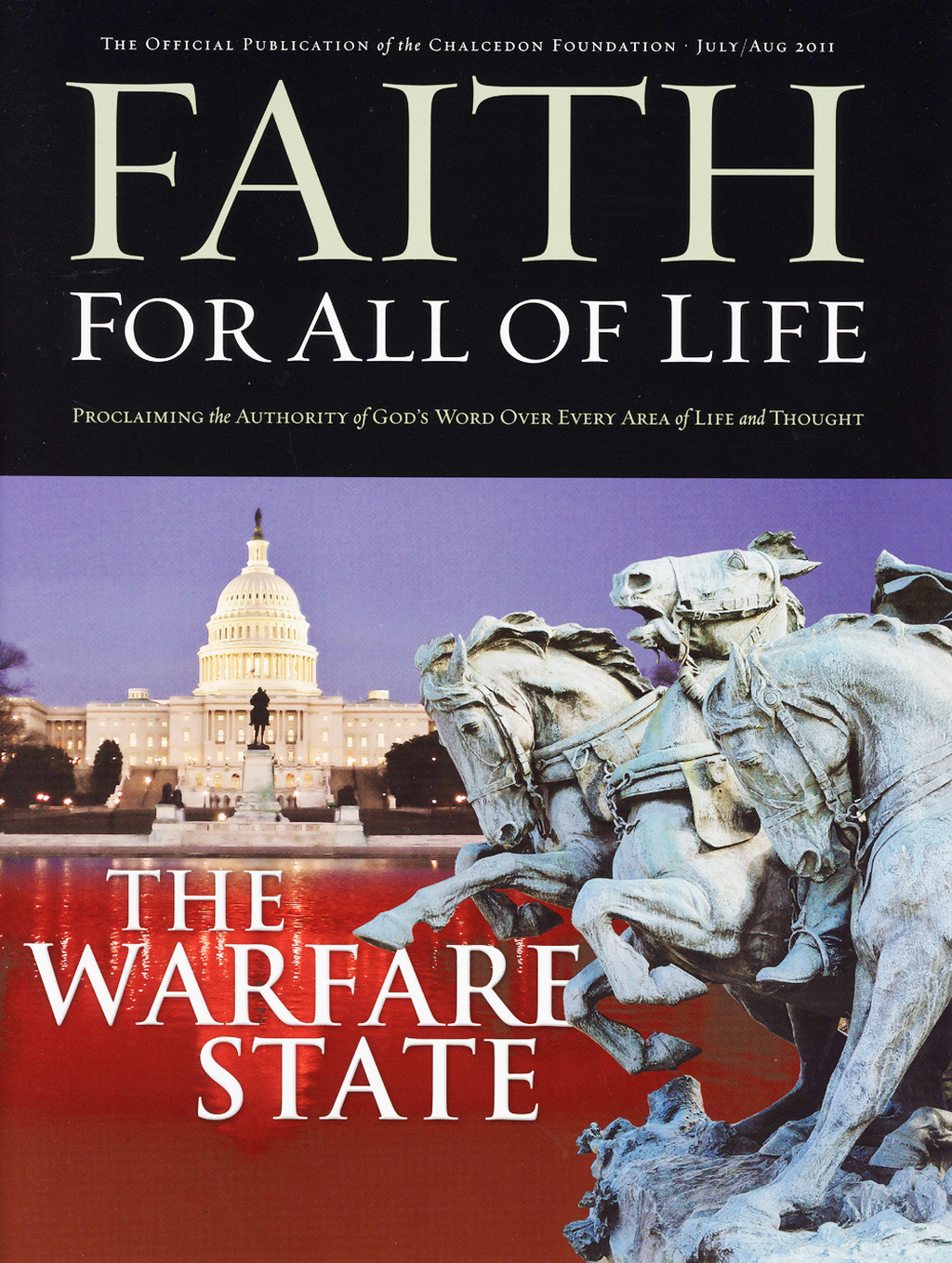
Magazine Issue
July/August 2011 Articles:

The Warfare State

- R. J. Rushdoony
Why Liberty is Part of Christian Doctrine

- Mark R. Rushdoony
Cornelius Van Til and Rousas John Rushdoony, Part 2: Defenders of the Faith
- Michael McVicar
How Lobsters Expose the Achilles’ Heel of the Conservative Movement
- Ian Hodge
Don’t Plant Churches, Build Covenant Communities

Rethinking Childbearing - Part 2

- Andrea G. Schwartz

Christian Radio Host’s Project: Rebuilding Civilization

- Lee Duigon